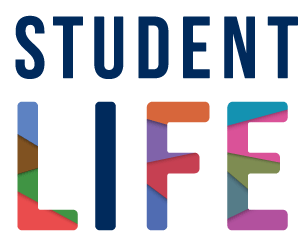Get Involved with Student Life
Have a say in shaping Student Life at U of T. Student advisory committees and involvement opportunities give you a direct way to share your ideas, represent your community and influence the programs and services that support you.

How students help guide us
Student involvement is central to our work in Student Life. Through advisory councils, focus groups, consultations, assessment surveys and committees, students share perspectives that shape Student Life programs and services. These groups bring together full-time and part-time undergraduate students, second-entry professional faculty students and graduate students, to ensure a wide range of student voices are heard.
Student needs and values, together with university strategic frameworks and documents, guide the direction and programs of Student Life.
Learn about the ways to get involved:
Student advisory committees
Student advisory committees connect Student Life staff with U of T students. By sharing your experiences, you help shape programs, services and supports that reflect what students need. Your input shapes Student Life’s work as you build skills that empower you to become a leader in your community – advocating for peers and championing important issues.
When you take part in a student advisory committee, you:
- Influence decisions that affect your peers
- Develop leadership, communication and advocacy skills
- Build meaningful connections with staff and fellow students
- Gain experience that can be recognized on your Co-Curricular Record (CCR)
- Receive an honorarium or other recognition (depending on the committee)
Unit-level advisory committees
Departments across Student Life host their own advisory committees. By joining one, you provide direct input on programs and resources in a specific area, making sure they reflect student needs and experiences.
Student Life advisory council
The Advisory Council brings together representatives from local departments and resources. This group creates a feedback loop between students and staff, ensuring that student perspectives inform decisions that affect Student Life as a whole.
Student Life advisory committees:
Apply with one form
Complete the central application form➚ to select and apply for one or more of these unit-level committees.
Applications close September 12, 2025
Apply directly
These unit-level committees have their own application process. Explore each committee to learn how to apply.
Other involvement opportunities
Student Activity Space Committee
The Committee for the Allocation of Student Activity Space (CASAS) decides how the 50+ shared offices at 21 Sussex Clubhouse are assigned to campus groups, student societies and multi-faith needs.
Each year, student representatives join staff from Student Life on the committee to decide how student activity space is shared on campus.
Student Initiative Fund
The Student Initiative Fund (SIF) provides up to $3,000 in funding for student-led projects that build community and enhance the student experience at U of T.
Each year, six students sit on the SIF Committee alongside staff from Student Life. Members have the chance to support student ideas and shape campus life.
Guiding frameworks and documents
The strategic frameworks and university documents that guide our programs are:




